This article needs additional citations for verification .(May 2017) |
Dean Beard (August 31, 1935 - April 4, 1989) was an American rockabilly musician, known as the "West Texas Wild Man". [1]
This article needs additional citations for verification .(May 2017) |
Dean Beard (August 31, 1935 - April 4, 1989) was an American rockabilly musician, known as the "West Texas Wild Man". [1]
Beard was born in Santa Anna, Texas. He was the son of Raymond and Opral (Baker) Beard. He lived in Coleman most of his life. In high school, he and his friends formed a band called the Crew Cats.
He played at a night club in Memphis with Elvis Presley in the mid-1950s. Beard's first record "Red Rover"/ "Wake Up Jacob" was released in 1955 for Fox Records. That same year, he made another single, "Time Is Hangin' Heavy On My Hands" /" Sing, Sing, Sing". Both singles didn’t attract any attention.
Between 1956 and 1957, he recorded for Sun Records, but none of his songs were released until years later. Some of these songs feature a young Jim Seals on saxophone, who would later co-found the duo, Seals and Crofts, with drummer Dash Crofts.
In 1957, his most popular hit, “Rakin’ and Scrapin’”, was released on Edmoral Records in March, but didn’t become popular, until another version he made was released a month later for Atlantic Records. He recorded it with Seals on saxophone and Crofts on drums. He kept making records for Atlantic such as, "Party Party". Earlier that year, he teamed up with songwriter Slim Willet, and wrote their most successful songs together.
He recorded for Challenge Records in 1958, and was also a pianist with The Champs, who also had a contract with that label.
In 1959, he was fired from the Champs by manager/rhythm guitarist Dave Burgess because he was accused of taking part of the cut meant for Seals and Crofts, but made one more record for Challenge that year.
He kept recording for different labels through the 1960s with less success.
His last single was in 1966 for Sims Records called, “Are There Honkey Tonks In Heaven" / "Pocketfull Of Stardust". He achieved recognition in the 1970s and 80s when he started performing live again.
He died at Coleman County Medical Center in Coleman, Texas, on April 4, 1989, from diabetes and other health-related issues.
| Year | Title | Label # | |||
|---|---|---|---|---|---|
| 1955 | Red Rover / Wake Up, Jacob | Fox 45-405 | |||
| 1955 | Sing, Sing, Sing / Time Is Hanging Heavy on My Hands | Fox 45-408 | |||
| 1957 | Rakin and Scrapin / On My Mind Again | Edmoral 1011-45 | |||
| 1957 | Rakin and Scrapin / On My Mind Again | Atlantic 45-1137 | |||
| 1957 | Party, Party / Stand By Me | Atlantic 45-1162 | |||
| 1958 | Hold Me Close / Take Time to Love Me | Atlantic 45-1182 | |||
| 1958 | Egad, Charlie Brown / Keeper of the Key | Challenge 59033 | |||
| 1959 | Little Lover / Holding on to a Memory | Challenge 59048 | |||
| 1959 | Little Koko Herrera / Moon Over Mexico (B-side by Chris & Paul Herrera) | Villa 101 | |||
| 1962 | (Ciudad) Villa Acuña / The Day That I Lost You | Gaylo BM-112 | |||
| 1962 | Villa Acuña / The Day That I Lost You | Candix 341 | |||
| 1962 | Tropical Night / Coffee Break | Joed JT-715 | |||
| 1962 | The Red Rose / I Don't Know How | Winston 1063 | |||
| 1963 | That's How It gets Sunup / Don't Let the Stars Get In Your Eyes | Winston 1073 | |||
| 1963 | My Roberta / No Love for Me | Winston 1074 | |||
| 1964 | Strawberry Shake / You're the Nearest Thing to Heaven | Gina RT-1116 | |||
| 1965 | Party, Party / You Don't Have to Go Home (But You Can't Stay Here) | Sangelo 1/2 | |||
| 1966 | Pocketfull of Stardust / (Are There) Honkytonks in Heaven | Sims 299 | |||
| Unissued | |||||
| 1956 |
| Sun | |||
| 1958 |
| Challenge | |||
| |||||
| [status unknown] | ||||

Randolph Denard Ornette Coleman was an American jazz saxophonist, trumpeter, violinist, and composer. He is best known as a principal founder of the free jazz genre, a term derived from his 1960 album Free Jazz: A Collective Improvisation. His pioneering works often abandoned the harmony-based composition, tonality, chord changes, and fixed rhythm found in earlier jazz idioms. Instead, Coleman emphasized an experimental approach to improvisation rooted in ensemble playing and blues phrasing. Thom Jurek of AllMusic called him "one of the most beloved and polarizing figures in jazz history," noting that while "now celebrated as a fearless innovator and a genius, he was initially regarded by peers and critics as rebellious, disruptive, and even a fraud."

Lord Melody was a popular Trinidadian calypsonian, best known for singles such as "Boo Boo Man", "Creature From The Black Lagoon", "Shame & Scandal", "Jonah and the Bake", "Juanita", and "Rastaman Be Careful". Melody's career spanned forty years, from the beginnings of popular calypso music to his embrace of the more dance oriented Soca style by the late 1970s.
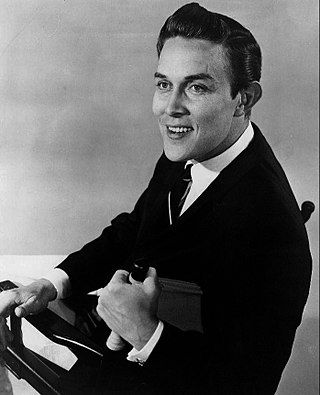
Jimmy Ray Dean was an American country music singer, television host, actor and businessman. He was the creator of the Jimmy Dean sausage brand as well as the spokesman for its TV commercials, and his likeness and voice continue to be used in advertisements after his death.

Coleman Randolph Hawkins, nicknamed "Hawk" and sometimes "Bean", was an American jazz tenor saxophonist. One of the first prominent jazz musicians on his instrument, as Joachim E. Berendt explained: "there were some tenor players before him, but the instrument was not an acknowledged jazz horn". Hawkins biographer John Chilton described the prevalent styles of tenor saxophone solos prior to Hawkins as "mooing" and "rubbery belches". Hawkins denied being first and noted his contemporaries Happy Caldwell, Stump Evans, and Prince Robinson, although he was the first to tailor his method of improvisation to the saxophone rather than imitate the techniques of the clarinet. Hawkins' virtuosic, arpeggiated approach to improvisation, with his characteristic rich, emotional, and vibrato-laden tonal style, was the main influence on a generation of tenor players that included Chu Berry, Charlie Barnet, Tex Beneke, Ben Webster, Vido Musso, Herschel Evans, Buddy Tate, and Don Byas, and through them the later tenormen, Arnett Cobb, Illinois Jacquet, Flip Phillips, Ike Quebec, Al Sears, Paul Gonsalves, and Lucky Thompson. While Hawkins became known with swing music during the big band era, he had a role in the development of bebop in the 1940s.
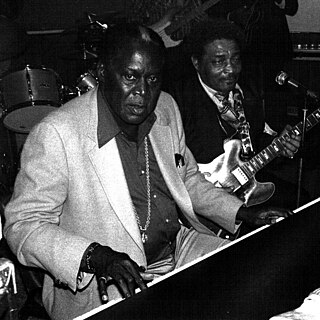
John Len Chatman, known professionally as Memphis Slim, was an American blues pianist, singer, and composer. He led a series of bands that, reflecting the popular appeal of jump blues, included saxophones, bass, drums, and piano. A song he first cut in 1947, "Every Day I Have the Blues", has become a blues standard, recorded by many other artists. He made over 500 recordings.

Charles Ellsworth "Pee Wee" Russell was an American jazz musician. Early in his career he played clarinet and saxophones, but he eventually focused solely on clarinet.
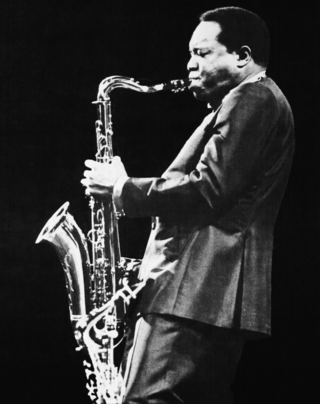
Curtis Ousley, known professionally as King Curtis, was an American saxophonist who played rhythm and blues, jazz, and rock and roll. A bandleader, band member, and session musician, he was also a musical director and record producer. A master of the instrument, he played tenor, alto, and soprano saxophone. He played riffs and solos on hit singles such as "Respect" by Aretha Franklin (1967), and "Yakety Yak" by The Coasters (1958) and his own "Soul Twist" (1962), "Soul Serenade" (1964), and "Memphis Soul Stew" (1967).
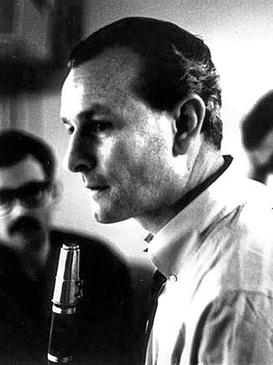
James Peter Giuffre was an American jazz clarinetist, saxophonist, composer, and arranger. He is known for developing forms of jazz which allowed for free interplay between the musicians, anticipating forms of free improvisation.

The Champs are an American Rock and roll band, most famous for their Latin-tinged 1958 instrumental single "Tequila". The group took their name from that of Gene Autry's horse, Champion, and was formed by studio executives at Autry's Challenge Records to record a B-side for the Dave Burgess single, "Train to Nowhere". The intended throwaway track became more famous than its A-side, as "Tequila" went to No. 1 in just three weeks, and the band became the first group to go to the top spot with an instrumental that was their first release. The song was recorded at Gold Star Studios in fall 1957, and in 1959 won the Grammy Award for Best R&B Performance. It sold over one million copies, and was awarded a gold disc by the RIAA.

Benjamin Francis Webster was an American jazz tenor saxophonist.

John Richard Duncan was an American country music singer-songwriter, best known for a string of hits in the mid- to late 1970s. In his career, he released 14 studio albums, including thirteen on Columbia Records. These albums produced more than 30 chart singles, with three of those reaching number one: "Thinkin' of a Rendezvous", "It Couldn't Have Been Any Better", and "She Can Put Her Shoes Under my Bed (Anytime)" from 1976, 1977, and 1978, respectively. Seven more of his singles were top-10 hits.
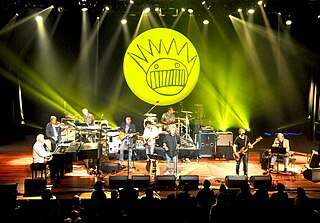
Ween is an American rock band from New Hope, Pennsylvania, formed in 1984 by Aaron Freeman and Mickey Melchiondo, better known by their respective stage names, Gene and Dean Ween. Generally categorized as an alternative rock band, the band are known for their irreverent, highly eclectic catalog of songs inspired by funk, soul, country, gospel, prog, psychedelia, R&B, heavy metal, and punk rock.
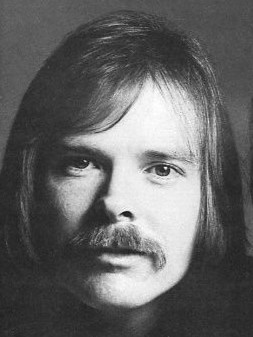
Danny Wayland Seals, also known as England Dan, was an American musician. The younger brother of Seals and Crofts member Jim Seals, he first gained fame as one half of the soft rock duo England Dan & John Ford Coley, who charted nine singles between 1976 and 1980, including the No. 2 Billboard Hot 100 hit "I'd Really Love to See You Tonight".

Little Texas is an American country music band started in Nashville, Tennessee, in 1988. Its founding members were Tim Rushlow, Brady Seals, Del Gray (drums), Porter Howell, Dwayne O'Brien, and Duane Propes. Signed to Warner Bros. Records Nashville in 1991, Little Texas released its debut album First Time for Everything that year. The album's lead off single, "Some Guys Have All the Love", reached a peak of No. 8 on the Billboard Hot Country Singles & Tracks charts. Little Texas charted thirteen top-40 hits between then and 1995, including the number one "My Love" in 1994. Their debut album earned a gold certification from the Recording Industry Association of America (RIAA), while 1993's Big Time was certified double platinum and 1994's Kick a Little was certified platinum.
"Blue Monday" is a song written by Dave Bartholomew, first recorded in 1953 by Smiley Lewis and issued as a single, in January 1954, on Imperial Records. The single, with a slow-rocking beat, features an instrumental electric guitar solo by Lewis.

Seals and Crofts were an American soft rock duo made up of James Eugene Seals and Darrell George "Dash" Crofts They are best known for their hits "Summer Breeze" (1972), "Diamond Girl" (1973), and "Get Closer" (1976), each of which peaked at No. 6 on the Billboard Hot 100 chart. Both Seals and Crofts were publicly outspoken advocates for the Baháʼí Faith. Though the duo disbanded in 1980, they reunited briefly in 1991–1992, and again in 2004, when they released their final album, Traces. Seals and his younger brother, the charting singer-songwriter "England" Dan Seals, later performed publicly together as Seals & Seals.

"Tequila" is a 1958 Latin-inspired surf instrumental song written by Chuck Rio and recorded by American Rock and roll band The Champs. "Tequila" became a No. 1 hit on both the pop and R&B charts at the time of its release and continues to be strongly referenced in pop culture to this day.

The Great Otis Redding Sings Soul Ballads, simply referred to as Soul Ballads or Sings Soul Ballads, is the second studio album by American soul singer-songwriter Otis Redding, released in 1965. The album was one of the first issued by Volt Records, a sub-label of Stax Records, and Redding's first on the new label. Like Redding's debut Pain in My Heart (1964), Soul Ballads features both soul classics and originals written by Redding and other Stax Records recording artists. The recording sessions took place at the Stax studios in Memphis. The album features a stereo mix made by engineer Tom Dowd, replacing the early mono mix.
Challenge Records was founded in Los Angeles in 1957 by cowboy singer Gene Autry and former Columbia Records A&R representative Joe Johnson. Autry's involvement with the label was short-lived as he sold his interest to the remaining partners in October 1958.
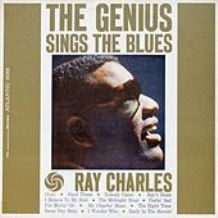
The Genius Sings the Blues is an album by Ray Charles, released in October 1961 on Atlantic Records. The album was his last release for Atlantic, compiling twelve blues songs from various sessions during his tenure for the label. The album showcases Charles's stylistic development with a combination of piano blues, jazz, and southern R&B. The photo for the album cover was taken by renowned photographer Lee Friedlander. The Genius Sings the Blues was reissued in 2003 by Rhino Entertainment with liner notes by Billy Taylor.